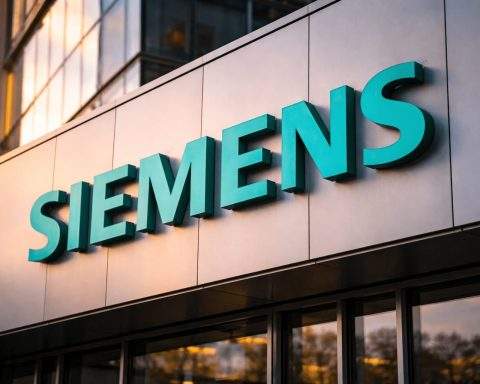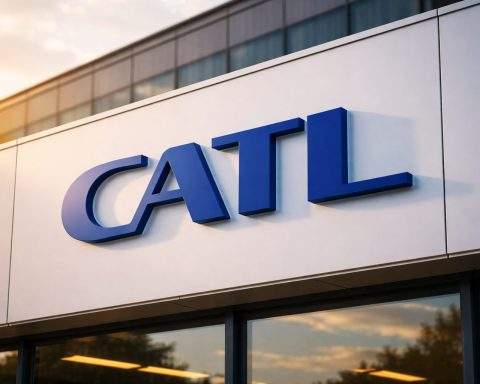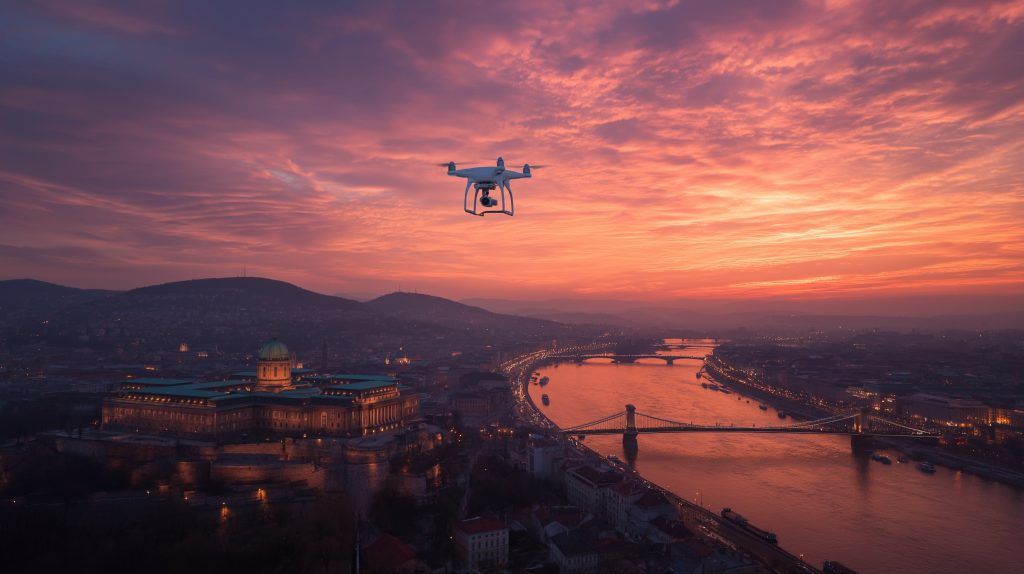- MIT and Duke researchers used AI to design polymers with iron-based ferrocenes that absorb stress, dramatically speeding up additive discovery from weeks per candidate, with findings published in ACS Central Science.
- Profluent Bio used a protein language model trained on 500 million sequences to invent OpenCRISPR-1, the first CRISPR enzyme designed entirely by AI, which edited human genome cells with high precision and was published in Nature, with OpenCRISPR-1 open-sourced.
- OpenAI released two open-weight large language models with 120 billion and 20 billion parameters, optimized to run on a single GPU or a laptop, with the weights openly accessible for fine-tuning, and AWS Bedrock now offering the models.
- Thomson Reuters launched CoCounsel Legal, an AI-powered legal assistant to help lawyers with research and drafting.
- Preply unveiled AI-driven tutoring features that personalize lesson plans for students.
- Google announced a three-year, $1 billion AI training pledge to more than 100 universities and nonprofits, including cloud credits and access to a premium version of Gemini, with plans to expand to every accredited nonprofit college.
- OpenAI is reportedly pursuing a $500 billion valuation via a potential secondary share sale, after doubling revenue to an annualized $12 billion in the first seven months of 2025 and aiming for $20 billion by year-end, while seeking a $40 billion funding round led by SoftBank.
- Across Europe, utilities such as Engie, RWE, and Enel are converting retired coal and gas plants into AI data centers in partnerships with Microsoft and Amazon, leveraging existing grid connections and water cooling for hundreds of millions to billions of euros in deals.
- The U.S. General Services Administration approved OpenAI’s ChatGPT, Google’s Gemini, and Anthropic’s Claude for federal procurement as part of a broader AI strategy to boost domestic use and exports, with procurement rules emphasizing accuracy, transparency, and bias-free operation.
- A bipartisan group of U.S. senators urged the Commerce Department to investigate data security risks from Chinese open-source AI platforms like DeepSeek, pressing for potential restrictions on federal use amid concerns about data siphoning and military ties.
Over the past two days (August 6–7, 2025), the AI world has seen a whirlwind of major developments across research labs, corporate boardrooms, and government halls. Breakthrough scientific achievements were unveiled, tech giants and startups made bold moves, regulators ramped up oversight, and debates intensified over AI’s societal impacts. Below is a comprehensive roundup of all the significant AI news from the last 48 hours, organized by theme for an easy scan.
Research Breakthroughs: AI Redefining Science
- AI-Designed Tougher Plastics: Researchers at MIT and Duke announced a materials science breakthrough – using machine learning to design polymers far more resistant to tearing ts2.tech. The AI model helped identify special stress-responsive crosslinker molecules (“mechanophores,” notably iron-based ferrocenes) that can be added to plastics so they absorb force instead of cracking ts2.tech news.mit.edu. “You apply some stress to them, and rather than cracking or breaking, you instead see something that has higher resilience,” explained MIT Professor Heather Kulik, the study’s senior author news.mit.edu. The algorithm dramatically sped up finding effective additives – a task that might take human chemists weeks per candidate – and the AI-picked molecules indeed made polymer networks significantly tougher in lab tests ts2.tech ts2.tech. The findings, published in ACS Central Science, showcase how AI can accelerate sustainable materials discovery 1 .
- First AI-Created Genome Editor: In a landmark biotech feat, researchers from startup Profluent Bio used generative AI to create a new gene-editing enzyme dubbed OpenCRISPR-1, and successfully edited human genome cells with it ts2.tech. This is the first-ever CRISPR enzyme designed entirely by AI rather than humans ts2.tech – the team trained a massive protein language model on 500 million sequences to “invent” novel CRISPR-Cas enzymes hundreds of mutations removed from any found in nature ts2.tech brownstoneresearch.com. Remarkably, the AI-designed enzyme performed precise genome edits, matching or even exceeding the efficacy of natural CRISPR systems ts2.tech. Profluent has open-sourced OpenCRISPR-1 and published the work in Nature, aiming to catalyze further research ts2.tech. Scientists are heralding this as the dawn of an AI-driven biotech era, noting such a feat “would have been impossible even five years ago” due to prior computational limits ts2.tech brownstoneresearch.com. The breakthrough underscores how AI can invent powerful new biological tools, potentially accelerating cures and therapies that were previously out of reach.
New AI Products & Model Launches
- OpenAI’s “Open-Weight” Models: OpenAI unveiled two new open-weight large language models (with 120 billion and 20 billion parameters) that bring advanced reasoning capabilities to everyday devices ts2.tech. These models excel at complex tasks – coding challenges, competition-level math, medical queries – yet are optimized to run on a single GPU or even a personal laptop ts2.tech ts2.tech. Crucially, their trained parameters (the “weights”) are openly accessible, allowing developers to fine-tune the models for specific uses without needing OpenAI’s proprietary data ts2.tech. “One of the unique things about open models is that people can run them locally… behind their own firewall, on their own infrastructure,” OpenAI co-founder Greg Brockman said in a press briefing ts2.tech reuters.com. In fact, Amazon announced that OpenAI’s new models are now available through its AWS Bedrock AI service – the first time OpenAI models have been offered on a rival cloud platform ts2.tech. This collaboration lets businesses deploy OpenAI’s tech on Amazon’s cloud, reflecting a broader trend of partnerships to meet surging demand for accessible AI.
- AI Everywhere – New Tools in Legal and Education: Established companies are also rolling out AI-powered features to reinvent their products. For example, Thomson Reuters launched an “Agentic AI” legal assistant called CoCounsel Legal to help lawyers with research and drafting, aiming to transform legal work through deep-research AI ts2.tech. In education, language-learning platform Preply unveiled new AI-driven tutoring features that use generative AI to personalize lesson plans for students ts2.tech. These product launches – alongside countless others in finance, healthcare, and customer service – show how rapidly AI is being integrated into consumer and enterprise tools. From legal briefs to language lessons, AI enhancements are becoming standard, underscoring the tech industry’s race to infuse AI into virtually every service 2 .
- Google’s $1B AI Training Pledge: In a major tech initiative, Google announced a three-year, $1 billion program to provide AI training and tools to higher education institutions and nonprofits across the United States reuters.com. Over 100 universities have signed on so far, including large public systems like Texas A&M and UNC reuters.com. The commitment will fund resources such as cloud computing credits for AI courses and research, and even give students free access to advanced AI tools – including an upcoming premium version of Google’s Gemini chatbot reuters.com. Google aims to eventually extend the program to every accredited nonprofit college in the U.S. and is discussing similar plans abroad, according to Google’s AI lead James Manyika reuters.com. The announcement comes as rivals OpenAI, Anthropic, Amazon and others are also pushing AI in education, reflecting a broad effort to train the next-generation AI workforce and spread AI skills as the technology permeates society 3 .
Industry & Business: Big Bets and Booming Demand
- OpenAI’s Soaring Valuation & Talent Wars: The frenzy around generative AI is translating into eye-popping valuations. ChatGPT-maker OpenAI is reportedly in talks for a share sale that would value the company at an astronomical $500 billion – a huge jump from about $300B currently reuters.com. The potential secondary stock sale, aimed at letting current and former employees cash out some equity, underscores OpenAI’s rapid growth in users and revenue. Bolstered by its viral ChatGPT, OpenAI doubled revenue in the first seven months of 2025 to reach an annualized run-rate of $12 billion, and it’s on track for $20 billion by year-end reuters.com. The company is concurrently raising a fresh $40 billion funding round led by Japan’s SoftBank Group to fuel its ambitious expansion reuters.com. Such massive bets reflect intense competition in the AI arena – tech giants are scrambling for any edge. Meta, for instance, has reportedly committed billions to invest in Scale AI and lure its 28-year-old CEO Alexandr Wang to lead Meta’s new AI unit reuters.com. This expensive talent war highlights how coveted top AI expertise has become; as one industry analyst noted, no one wants to be “left behind in that race,” driving ever-bigger moves to secure talent and tech 4 .
- Startup Funding Frenzy: Investors continue to pour capital into AI startups at a record pace. Case in point: enterprise AI startup Clay just saw its valuation more than double to $3.1 billion in only three months reuters.com. The company – which uses AI to automate sales and marketing operations – raised a fresh $100 million led by Google’s CapitalG fund, after being valued at $1.5B in an employee share sale earlier this year reuters.com. This leap is part of a broader boom: global dealmaking hit $2.6 trillion in the first seven months of 2025, the highest post-pandemic peak, as boards chase growth and an “impact of a surge in AI activity” drives big mergers ts2.tech. While the number of deals is down year-on-year, total value is up 28% thanks to mega-deals motivated by AI opportunities ts2.tech. “Whether it’s artificial intelligence… we see our clients not wanting to be left behind in that race and that’s driving activity,” explained Andre Veissid, EY’s global transactions leader ts2.tech. Even the stock market reflects this AI euphoria – HSBC this week raised its year-end S&P 500 target to 6,400 (over 800 points higher) largely “citing euphoria around artificial intelligence” boosting tech stocks reuters.com. In short, Wall Street and venture capital alike are betting big that AI’s transformational promise will translate into sustained economic upside.
- Powering the AI Boom – Data Centers in Coal Plants: The ravenous demand for AI computing power is spawning creative infrastructure shifts, especially in energy and real estate. Across Europe, utilities are teaming up with tech firms to convert aging power plants into cutting-edge data centers for AI workloads. Companies like France’s Engie, Germany’s RWE, and Italy’s Enel are repurposing retired coal and gas plant sites in partnership with cloud giants (such as Microsoft and Amazon) ts2.tech. These old plants offer ready-made grid connections and water cooling – two critical bottlenecks for massive AI server farms ts2.tech. By turning decommissioned plants into AI data centers, utilities can offset closure costs and secure new long-term revenue, while tech firms get fast-track access to energy infrastructure. “You have all the pieces that come together – water infrastructure and heat recovery,” noted Microsoft energy VP Bobby Hollis, emphasizing the advantages of these locations ts2.tech. Amazon’s energy director for Europe added that obtaining permits is often quicker at old plant sites since much of the infrastructure already exists ts2.tech. These deals go far beyond selling unused land – utilities are striking power-supply contracts worth hundreds of millions (or even billions) of euros over time ts2.tech. It’s a win-win formula: Big Tech gets the electricity and cooling needed for AI supercomputers, and Europe’s energy companies get a lucrative new lease on life for obsolete facilities, all while supporting the continent’s digital transformation 5 .
Government & Regulation: AI on the Agenda
- U.S. Approves Top AI for Government Use: In Washington, the U.S. government moved to accelerate its adoption of AI. The General Services Administration (GSA) – the federal procurement arm – officially added OpenAI’s ChatGPT, Google’s upcoming Gemini, and Anthropic’s Claude to its list of approved AI vendors ts2.tech. This means federal agencies can more easily buy and deploy these advanced AI models via pre-negotiated contracts. Wednesday’s GSA approval is part of the Trump administration’s new AI strategy aimed at boosting domestic AI use and exports ts2.tech. The administration’s “AI blueprint” (rolled out July 23) seeks to streamline rules and vastly expand AI exports to U.S. allies, in an effort to maintain America’s edge over China ts2.tech. The GSA emphasized it will prioritize AI solutions that ensure accuracy, transparency and freedom from bias ts2.tech – a sign that ethical AI principles are being baked into government contracts. President Donald Trump has called the AI race “the fight that will define the 21st century,” underscoring the high stakes involved reuters.com. For U.S. tech firms, the immediate upshot is a green light to sell AI systems across federal agencies – from research assistants to mission-specific apps – under guidelines that demand these tools be responsible and trustworthy ts2.tech 6 .
- Crackdown on AI Ticket Pricing: American regulators are also scrutinizing how AI might harm consumers. In the aviation sector, U.S. Transportation Secretary Sean Duffy warned airlines not to use AI for personalized ticket pricing that targets individuals, calling the idea unacceptable ts2.tech. “To try to individualize pricing on seats based on how much you make or who you are – I can guarantee we will investigate if anyone does that,” Duffy said, vowing to act if any airline attempts AI-driven price discrimination ts2.tech reuters.com. His comments follow concerns that Delta Air Lines was considering using AI to charge each customer their maximum “pain point” price (a claim Delta has denied, saying it “will not and has not used AI” to set individual fares) ts2.tech. U.S. lawmakers are taking it seriously: a bipartisan group in Congress introduced a bill to ban companies from using AI on consumer data to set individualized prices or wages ts2.tech. The proposed legislation specifically targets airlines, even citing a hypothetical scenario of an airline raising a fare after detecting a customer’s search for a family funeral ts2.tech. Airlines argue they’ve used dynamic pricing for decades – adjusting fares based on demand, timing, and market factors, but not based on personal data ts2.tech. Regulators, however, are drawing a line: leveraging personal profiles or income info to algorithmically exploit customers would likely be deemed an unfair practice. The debate highlights a new frontier for consumer protection in the AI era, as officials seek to preemptively curb “algorithmic gouging” before it takes off.
- US Senators Sound Alarm on Chinese AI: Geopolitics and AI collided as a group of U.S. senators urged action against potential security threats from Chinese AI models. In a letter on Tuesday, seven Republican senators asked the Commerce Department to investigate data security vulnerabilities posed by China’s open-source AI platforms like DeepSeek ts2.tech. Led by Senator Ted Budd, the group warned that apps built on Chinese AI could be feeding Americans’ personal or corporate data back to servers in China – or even directly to entities tied to the Chinese military ts2.tech reuters.com. They pressed officials for details on any risks that Chinese AI models might be “siphoning” sensitive U.S. data, or if those models improperly accessed U.S. tech (for example, using prohibited U.S. chips or violating U.S. AI model licenses to improve their own systems) ts2.tech. Notably, bipartisan legislation has already been floated to ban DeepSeek’s use on federal government devices and contracts reuters.com. The scrutiny follows reports that DeepSeek, a prominent Chinese AI startup based in Hangzhou, allegedly misappropriated U.S. technology and used shell companies to evade export controls and obtain high-end NVIDIA chips ts2.tech. U.S. officials believe DeepSeek is aiding China’s military and intelligence operations, even as the company boasted earlier this year that its reasoning models were on par with top U.S. systems at a fraction of the cost ts2.tech. Commerce Secretary Howard Lutnick said in January it appeared DeepSeek had misappropriated U.S. AI tech and vowed to impose restrictions if confirmed reuters.com. This week’s Senate push underscores growing American concern that advanced AI could become a backdoor for foreign espionage or data theft – and it foreshadows stricter controls on AI tech sharing between the U.S. and China amid their broader tech rivalry.
- Global AI Regulation Ripples: Elsewhere, regulators worldwide are keeping a close eye on Big Tech’s AI moves. In Italy, the antitrust authority launched an investigation into Meta for allegedly abusing its dominance by integrating a chatbot AI assistant into WhatsApp without user consent reuters.com reuters.com. The concern is that by embedding its Meta AI assistant into the popular messaging app, Meta could unfairly steer its massive user base to its own AI services, locking out competitors – a potential violation of EU competition rules reuters.com reuters.com. And in South Korea, the government announced plans to mandate human-rights and environmental due diligence for large companies (500+ employees), highlighted in the context of AI-driven supply chain monitoring reuters.com reuters.com. This initiative would require corporations to proactively identify and address human rights or labor abuses in their supply chains – linking the use of AI to broader corporate social responsibility. From Europe to Asia, policymakers are racing to balance innovation with oversight, updating laws to ensure AI technologies develop responsibly and transparently across the globe.
Ethical & Society Debates: Culture Clashes and AI Oversight
- Voice Actors vs. AI Clones: A showdown is brewing in the entertainment industry as human creatives push back against AI encroachment. Across Europe, professional voice actors are rallying to protect dubbing and voiceover jobs from AI-generated voices ts2.tech. Advances in synthetic speech now allow AI to mimic actors’ voices for film dubbing and narration – and studios have begun experimenting with automated voiceovers to cut costs. Dubbing artists see this as an existential threat. “I feel threatened even though my voice hasn’t been replaced by AI yet,” said Boris Rehlinger, a famous French dubbing actor known as the voice of Ben Affleck and others ts2.tech reuters.com. Rehlinger and his colleagues argue that dubbing is an art requiring human emotion and nuance, and they contend that training AI on recordings of their past performances (to create voice clones) violates their rights ts2.tech. They have formed initiatives like TouchePasMaVF (“Don’t Touch My French Version”) to lobby for regulations on AI voice use ts2.tech. Unions such as Germany’s VdS have gathered over 75,000 signatures on petitions demanding that AI firms obtain explicit consent from actors before using their voices and that any AI-generated content be clearly labeled as such ts2.tech ts2.tech. The issue gained attention after a Polish TV show tried using AI voices for its German dub earlier this year – the result was so flat and monotonous that viewer backlash forced the network to pull the AI-dubbed version ts2.tech. As streaming giants test AI for localization (Netflix recently used generative AI to sync dubbing lip movements) ts2.tech, European voice actors are pressing the EU for what one actor called a new “highway code” for AI – updated laws to ensure “artistic, not artificial, intelligence” prevails in creative fields ts2.tech reuters.com. This cultural battle mirrors themes in Hollywood’s ongoing writers’ and actors’ strikes, which have raised alarms about studios scanning performers’ likenesses to generate digital doubles. The broader ethical question looms: How can we harness AI’s efficiency without hollowing out human creativity and careers?
- Taming AI “Hallucinations” in Professional Settings: Meanwhile, other sectors are grappling with the reliability (or lack thereof) of AI systems. In the legal world, a few high-profile fiascos this summer – where lawyers submitted court filings written by ChatGPT that cited non-existent cases – have put a spotlight on AI “hallucinations” (fabricated facts). The fallout has prompted professional bodies to issue new guidance. On August 4, legal experts published fresh guidelines to help attorneys safely integrate AI into their work while avoiding such “ghost errors,” warning that AI-generated content must be verified by humans ts2.tech. Judges have likewise cautioned that blaming “the computer” won’t excuse shoddy lawyering; in one case a federal judge fined a firm after AI hallucinated false case citations in a brief. Similar debates are unfolding in medicine and academia about requiring human oversight to catch AI mistakes – from diagnostic chatbots that might confidently spread medical misinformation to essay-writing AI that could introduce undetected falsehoods ts2.tech. Regulators and scholars are increasingly arguing that transparency and verification need to accompany AI’s rollout in high-stakes areas ts2.tech. As one legal analyst put it, “It will be no defense to say ‘the AI did it’” if something goes wrong ts2.tech. Across society, this marks a shift from uncritical AI hype toward a more nuanced understanding of when to trust AI and when to double-check – a healthy cautionary trend as AI systems become ever more entwined in daily life 7 .
Each development above includes quotes from key players and links to primary sources for further reading. As the rapid progress of AI continues, these last two days of news highlight not only the technology’s breakneck advancements and big bets, but also the intensifying efforts to manage its risks and impacts worldwide. The AI revolution’s pace shows no signs of slowing – and neither does the global conversation about how to shape it responsibly.






